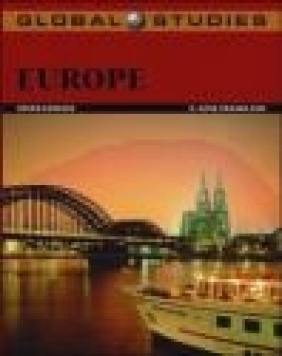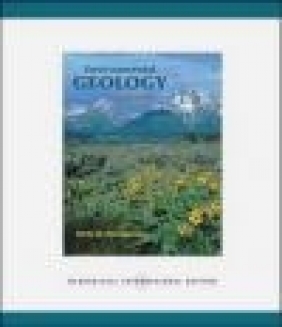Europe
E. Gene Frankland, Frankland
Europe
E. Gene Frankland, Frankland
- Producent: McGraw-Hill
- Rok produkcji: 2005
- ISBN: 9780073198743
- Ilość stron: 320
- Oprawa: Miękka
Niedostępna
Opis: Europe - E. Gene Frankland, Frankland
"Global Studies" is a unique series designed to provide comprehensive background information and selected world press articles on the regions and countries of the world. Each "Global Studies" volume includes an annotated listing of World Wide Web sites.Using Global Studies: Europe Selected World Wide Web Sites U.S. Statistics and Map Canada Statistics and Map World Map Europe Map Europe: Centuries of Commonalities and Conflicts An "Expanding" Europe Country Reports Austria (Republic of Austria) Belgium (Kingdom of Belgium) Cyprus (Republic of Cyprus) Denmark (Kingdom of Denmark) Finland (Republic of Finland) France (French Republic) Germany (Federal Republic of Germany) Greece (Hellenic Republic) Iceland (Republic of Iceland) Ireland (Eire) Italy (Italian Republic) Luxembourg (Grand Duchy of Luxembourg) Malta (Republic of Malta) The Netherlands (Kingdom of the Netherlands) Norway (Kingdom of Norway) Portugal (Portuguese Republic) Spain (Kingdom of Spain) Sweden (Kingdom Sweden) Switzerland (Swiss Confederation) United Kingdom (United Kingdom of Great Britain and Northern Ireland) The European Mini-States Andorra (Principality of Andorra); Liechtenstein (Principality of Liechtenstein); Monaco (Principality of Monaco); San Marino (Republic of San Marino); The Holy See (State of the Vatican City) Articles from the World Press 1. New Lessons from the Old World: The European Model for Falling in Love with Your Hometown, Jay Walljasper, E Magazine, March/April 2005. European cities tend to have a higher quality of life than American cities because of public policies seeking to restrict auto traffic and preserve metropolitan centers for people. The author draws lessons from initiatives in the Netherlands, Denmark, and Germany. 2. Europe's Balancing Act, Peter Ford, The Christian Science Monitor, June 2, 2005. Many Europeans recognize that the social market model needs reforms to meet the challenges of a changing world, but they remain wary of unfettered market capitalism. 3. Nationalism Ignites E.U. Rebellion: For Many Citizens, Identity Takes Precedence Over Unity, Daniel Williams and Craig Whitlock, The Washington Post, June 6, 2005. Citizens in Italy, France, the Netherlands, and Britain voice specific objections to further European integration. The underlying common theme appears to be defense of local customs and identities. 4. Europe's Commitment Anxiety, Jeremy Rifkin (with Daryl Lindsey), Spiegel Online, July 29, 2005. The rejection of the EU constitutional treaty by French and Dutch voters has cast a cloud of uncertainty over Europe's future. The author discusses why this has happened, what should be done, and what is at stake. 5. New Power for 'Old Europe', Mark Schapiro, The Nation, December 27, 2004. The EU is now setting the world's standard for environmental and health regulaA--tions, not the U.S. Under the EU's precautionary principle, the burden of proof for the safety of chemicals is placed on the manufacturers. U.S. firms must adhere to tough EU regulations or risk exclusion from the European single market. 6. Meet the Neighbours: A Survey of the EU's Eastern Borders, Robert Cottrell, The Economist, June 25, 2005. The eastern enlargement of the EU has gone well, but public opinion is cooling on further deepening and widening. The author favors further enlargements because of the positive impacts that the accession process would have on neighboring countries. In the meantime the EU is evolving as a looser union in which member states more selectively share sovereignty. 7. The Unbearable Lightness of Democracy: Poland and Romania after Communism, Alina Mungiu-Pippidi, Current History, November 2004. Although Poland and Romania began their trasitions from different starting points--with Poland's more advantageous--both have become "consolidated democracies inhabited by unsatisA--fied and ! inconsistent democrats." With its uncertainties and injustices, post-communism has not provided the socioeconomic environment that satisfies the citizenry. 8. In Solovenia, Prosperity and Ambition, Nicholas Wood, International Herald Tribune, April 28, 2005. Slovenia's economic transition began before independence. Its gradual approach has made it the most prosperous of the post-2004 new members of the EU. However, more economic growth will require economic reforms impinging upon the Slovenes' sense of social security. 9. Innovation gives Finland A Firm Grasp on Its Future, Robert G. Kaiser, The Washington Post, July 14, 2005. Over the last generation Finland has largely reinvented itself. Its leaders are committed to providing the resources and institutions to keep Finland out front intellecA--tually and technologically. The author concludes that the biggest difference with other countries is the Finns' willingness to change. 10. French Ready for a new Revolution, Kim Willsher, The Guardian, July 14, 2005. The French vote against the EU constitutional treaty reflects discontent with Jacques Chirac's leadership, but even more a deep malaise about what it means to be French in the 21st Century. Most of the public know that change must come, but are hesitating. With trust in today's political class low and a history of changing things by conflict, France may be on the verge of another regime crisis. 11. Europa: For a Nation's Conscience, Democracy Lights the Way, Richard Bernstein, International Herald Tribune, May 13, 2005. In contrast to Japan, RusA--sia, and China, Germany has fully confronted the national atrocities of its last century. The difference is explained in part by contrasting "dominant metaphors" of war, but mostly by a long cultural revolution that transformed German elites, newspapers, parties, and opinion-leaders. 12.Eastern Germany: Getting Back Together is so Hard, The Economist, September 18, 2004. Although there have been eastern success stories since 1990, the genA--eral conclusion is that there are still two Germanies economically and culturally. This article considers why and suggests how life could be improved for eastern Germans. 13.Ireland Unleashed: A Booming Economy has Fueled Prosperity, Transforming a Society Long Burdened by Oppression and Poverty, James A. Harriss, Smithsonian Magazine, March 2005. Since the late 1980's Ireland has been transA--formed from an agricultural to a high-tech economy. The author describes the many changA--es that prosperity has brought to everyday life. But can "Irishness" survive in a globalized Ireland? 14.Lessons of Spain and Portugal, Renwick McLean, International Herald Tribune, July 19, 2005. Both Spain and Portugal have used generous EU funds since 1986 to modernize infrastructure. However, Spain's efforts have been more successful due to better planning and management. There are lessons for the EU's new members states. 15.Politics: The Strange Tale of Tony Blair, The Economist, May 7, 2005. Tony Blair has reinvented the Labour Party, consolidated Thatcher's economic agenda, and enA--acted major constitutional reforms. With the Conservative Party still in disarray, British voters will reelect Blair's party to power--without enthusiasm. There is growing fatigue with the salesmanship and "spinning" of Blair and "New Labour."
Szczegóły: Europe - E. Gene Frankland, Frankland
Tytuł: Europe
Autor: E. Gene Frankland, Frankland
Producent: McGraw-Hill
ISBN: 9780073198743
Rok produkcji: 2005
Ilość stron: 320
Oprawa: Miękka
Waga: 0.68 kg

































